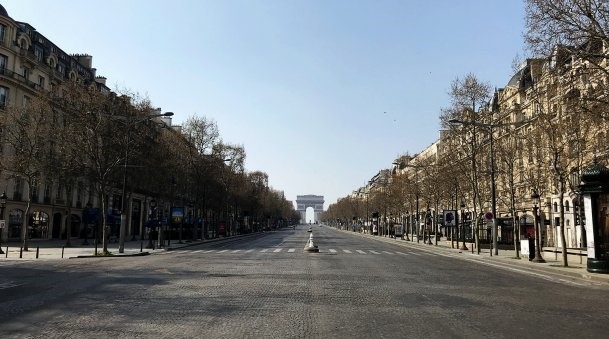Students from Lund University are located in different places all around the world to carry out exchange studies, work placements or fieldwork. Some of them have returned home to Sweden during the coronavirus crisis, while others have remained. We have asked some of them to provide a picture of their situation in the different places they find themselves in around the world.
Switzerland
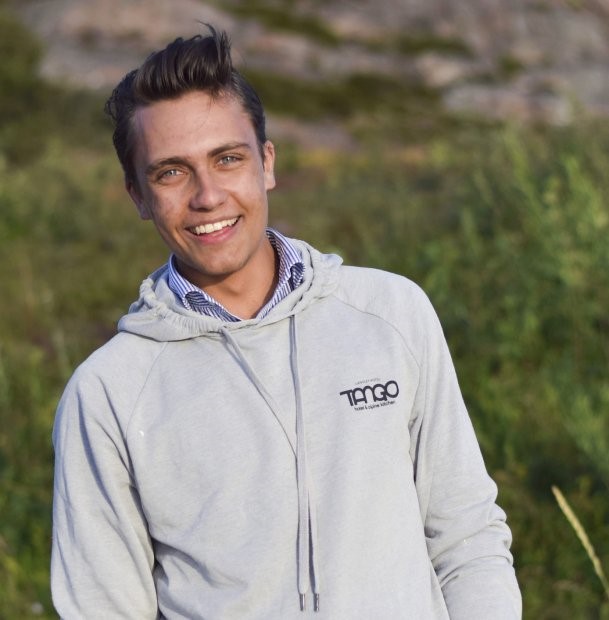
Hi, my name is Sander Svensson Svenungsson and I am a student at the School of Economics and Management. In January, I started an exchange semester in St Gallen in Switzerland where I was going to take courses in entrepreneurship and marketing. I really enjoyed it right from the start and was socialising a lot with other exchange students from all over the world.
Despite the coronavirus coming relatively early to Switzerland, the measures were minor at the beginning. Everything was open and there was no noticeable concern. However, the situation changed very dramatically.
First, all campus buildings closed and in just a week practically all restaurants, bars and shops were closed. I wanted to stay because I was hoping for improvement. We were still allowed to continue with our courses, but online. At that point, 255 of the 280 exchange students had already returned home.
Later that week we were given the news that you could be fined up to SEK 200 000 if you gather in groups of more than five people. I had followed the situation in other affected countries and suspected the next step would be a lockdown, which ultimately made me buy a ticket home. On March 21, I discontinued my exchange experience and left Switzerland.
Obviously, it was sad having to leave Switzerland but I am happy with my decision. We have been able to continue all the courses online and the teaching staff have been very understanding. All in all my experience in Switzerland was great, despite the circumstances.
Taiwan
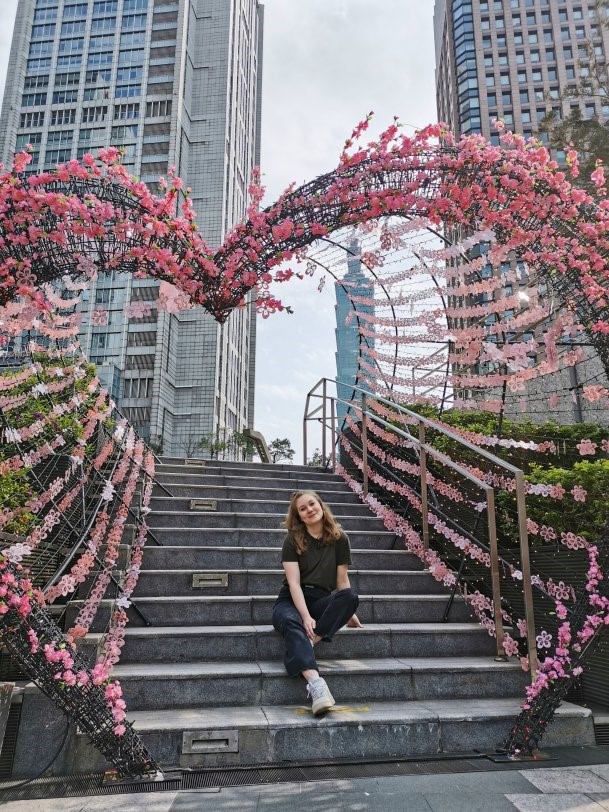
Hi! My name is Linda Sebbas and I am currently in Taipei, Taiwan. I am studying development studies in Lund and here in Taipei primarily political science at National Taiwan University (NTU) since February. Taiwan is probably one of the absolutely best places to be right now, as the virus has not spread as much here.
The coronavirus was already a global news item before I travelled to Taiwan, however, at that time it had primarily only affected China. The semester was delayed by two weeks, and I was quite uncertain about whether I would be able to go. Even so, ever since I arrived, staying here has seemed obvious, given what the situation is like here in comparison with Europe.
Despite the high-density living of the population of 23 million and the short distance to China, only approximately 380 coronavirus cases have been detected in the country. People here are careful anyway, which has probably contributed to the low number of cases.
Everyone wears masks in public places, on public transport and indoors in social situations. Until recently, it was voluntary to wear them but since April, it is a requirement. Every time you go into a large building, someone takes your temperature and asks you to disinfect your hands. People voluntarily avoid gathering in large groups and it is a given that you will voluntarily self-isolate for two weeks if you have any symptoms.
In much of society, it is business as usual. Restaurants, cafes and shops are still open, and people are free to move around in Taipei.
Some of my courses that have many participants have been moved online for safety reasons, but the majority of my lectures are still being held at the university. The university has also altered the attendance requirements for all courses so that it is easier to stay at home instead of attending lectures if you feel ill.
Most exchange students at NTU are still in Taiwan. For many people it feels safer right now to stay here than travel home.
Vietnam
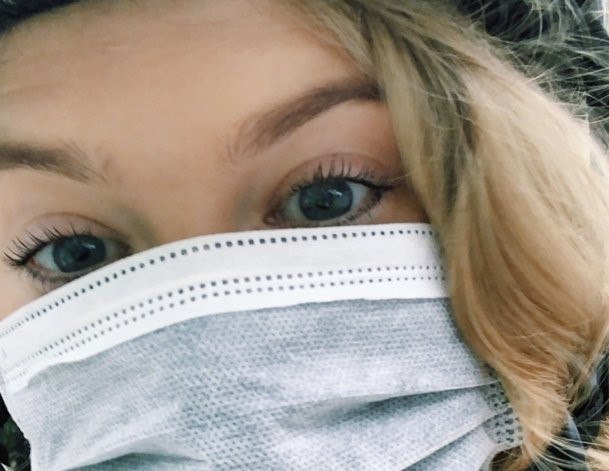
Hi, my name is Ida Köhler and I am writing my Master’s thesis in international law. The subject is international trade with a focus on the EU trade agreement with Vietnam, which is expected to come into effect this summer. My field study was based on interviewing many companies in Vietnam and talking with academics about their international and national commercial legislation.
At the beginning of February, I landed in an incredibly hot and humid Hanoi. Already at the airport, the concern about the coronavirus was noticeable, which was frightening, as I had come from Europe where there were just a few detected cases at the time. The family I rented an apartment from explained that all schools had been closed for several weeks, which was incomprehensible to me because at the time Vietnam and Hanoi barely had any detected cases.
I started my field study, which went to plan in the beginning. After a few weeks, the virus started to gather momentum in Europe and then daily life changed in Hanoi too. Suddenly, people started keeping their distance from us Europeans and the infection was associated with Europe instead of China. Compulsory masks, temperature checks and hand sanitiser outside all shops and restaurants were introduced. I was no longer welcome at the place where I used to eat lunch because of my nationality. The fact that I had been in Vietnam long before the infection took off in Europe did not matter.
For the first time in my life, I experienced hostility because of my nationality, an uncomfortable feeling that gave me insight into how it must feel for everyone who is exposed to racism and abuse on a daily basis around the world, for no reason at all. The people I was socialising with and I adapted to the situation, kept a low profile and started socialising in places where we knew Europeans were welcome as well as wearing masks everywhere we went.
Fear of the virus itself was extremely high in Vietnam, every person I talked to explained the situation to me and told me to be careful. I was never worried about the virus itself. My fear of having my movement drastically restricted or ending up in military quarantine with other Europeans who were no longer welcome in the country was greater.
I was able to stay in Hanoi five of the eight weeks before the Swedish Ministry for Foreign Affairs advised against non-essential travel and I had to return home. One week after I left all international departures from Hanoi were cancelled and the city was placed under quarantine. Despite the situation, my time in Hanoi was the best and most enriching experience I have ever had.
Argentina

Hi, my name is Julian Dannefjord. I was going to carry out exchange studies in the human rights programme at the Faculty of Social Sciences at the University of Buenos Aires in the spring of 2020. The spring semester in Argentina is scheduled from March to July and, following a month in Buenos Aires, I went to the university on 11 March for an information meeting. When I got there, the university was closed and the meeting cancelled because of the coronavirus. It turned out that the WHO had declared the coronavirus a pandemic on the same day.
After a few days, I was given another opportunity to choose courses, but the following day all classes were delayed for a month. I sat at home for approximately one week and followed the news. Major events, cinemas, museums and the like were gradually closed and people started saying a quarantine would be put in place. The rumours were true and the quarantine was put in place for the whole country a few days later. I expected to be stuck in Buenos Aires. The embassy told me one of the reasons for the quarantine was that Argentina’s healthcare system was ill equipped for an epidemic.
The week before, the atmosphere in the city had changed dramatically; masks were common on the streets and supermarket shelves were emptied and there were long queues. However, I think the underlying atmosphere of panic settled once the quarantine was introduced.
Then, information came from the embassy that you were allowed to break the quarantine to travel to the airport if you had documentation and a ticket out of the country. After many ifs and buts, I decided to leave the country because it felt like the situation was threatening to continue for some time – which proved to be right.
My girlfriend and I managed to secure tickets on a special ‘humanitarian’ flight for Spaniards in Argentina. From Madrid, we made our way home to Gothenburg via Amsterdam and Stockholm. The journey took approximately 60 hours door to door. There were many uncertainties about whether the flights were actually going ahead, or whether we would end up stuck on the way. It turned out that, one week after we returned home, all flights out of Argentina (with a few exceptions for special charter flights) were cancelled for an indefinite period and the quarantine was extended. We got out just before the country shut down again.
For nearly a whole year, I was very excited to be able to travel to one of my favourite cities in the world to study at a university I really wanted to experience. It really hurt to take the decision to return home. At least I found some peace in the fact that the situation was so global and I was hardly alone in experiencing it. However, this definitely is not what I expected of this year, so it will still take some time to process. I hope to have the opportunity to go on exchange to Buenos Aires again in the future.
France
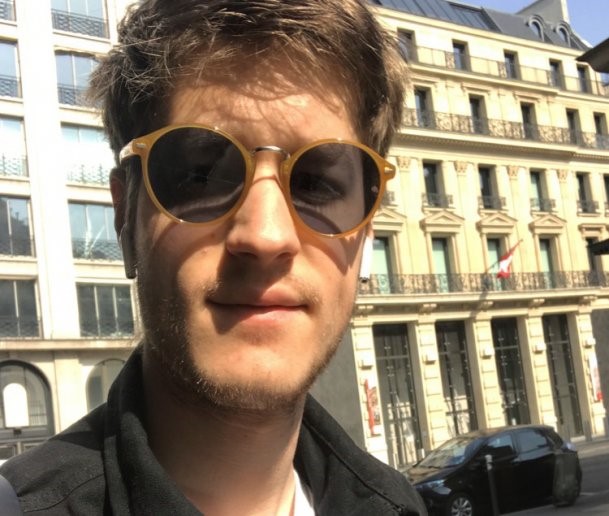
Hi, my name is David Grahn, I am 24 years old and study economics combined with statistics. At the beginning of February, I arrived in Paris to start a six-month work placement in the National Accounts Division under the Statistics and Data Directorate at the OECD.
February was a month full of new impressions, new people, language barriers and crowding in the metro and at markets in true Parisian spirit. It was a month of getting up early, travelling on metro line 9, blipping my access card to then sit at a stationary computer to start my work day. The same access card was used to buy lunch in the canteen. At the beginning, the canteen was full of people chatting and it was even common for people to joke about the coronavirus, particularly if anyone coughed unintentionally.
A few days before the decision was made for everyone at the OECD to work from home there were not many jokes being made and the queues were not long in the canteen. A week or so before, it was decided that the Statistics and Data Directorate would carry out a test in which everyone was to work from home for a day, you could say it became more than just a one-day test.
I am now sitting inside at least 23 hours per day in a 15-square metre studio close to a sunny but deserted Champs-Élysées. Admittedly, I do not need to get up quite as early or push my way onto the metro but on the other hand I am only allowed outside for one hour per day, granted that I remain within one kilometre of home and granted that I have a signed piece of paper that proves I am breaking the quarantine rules for one of seven valid reasons, together with a valid ID document.
Although March, and probably several months to come, did not turn out as I had expected, as someone who is interested economics, I do not believe there are many more interesting workplaces I could find myself in. In a crisis such as this one, there are many decision makers looking to the OECD and its expertise. As recently as today, I was in a virtual meeting for the whole Statistics and Data Directorate and Gabriela Ramos, chief of staff at the OECD, talked about how she had just finished a conversation with the Swedish Prime Minister who had thanked the OECD for and emphasised the importance of its work. Even if it is psychologically challenging at times to sit in quarantine, I am very happy to be able to continue my work placement here and, without a doubt, it will be six months I will never forget.

